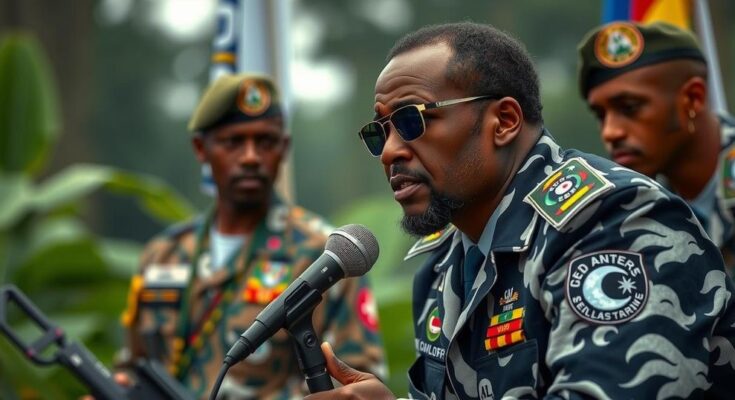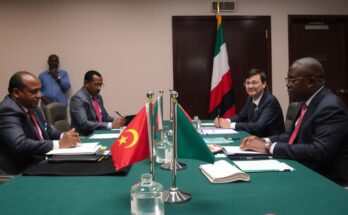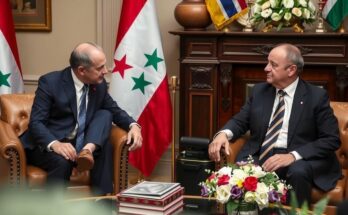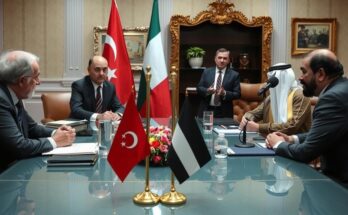The DR Congo government has accused the M23 rebel group of “ethnic cleansing” in the eastern territories, citing violent expulsions of locals amid a humanitarian crisis affecting over seven million people. The allegations are linked to Rwanda’s backing of M23, which has escalated violence in this mineral-rich region.
The government of the Democratic Republic of the Congo (DR Congo) has leveled accusations against the M23 rebel group, claiming it is engaging in “ethnic cleansing” in the eastern regions of the country, particularly in Rutshuru and Masisi. Interior Minister Jacquemain Shabani highlighted the alarming influx of foreign populations, asserting that local inhabitants have been violently expelled from their territories, which he deemed indicative of ethnic cleansing. This assertion follows M23’s recent establishment of administrators in claimed regions. As over 100 armed groups contend for control in the mineral-rich east, the resurgence of M23 has intensified the violence, exacerbating one of the world’s most severe humanitarian crises, with upwards of seven million individuals displaced. M23, primarily composed of ethnic Tutsis, broke from the Congolese army more than a decade ago and gained notoriety in 2012 after seizing Goma, the largest city in eastern Congo. Allegations persist that Rwanda, which M23 is reported to be backed by, has perpetrated war crimes in the region, a claim it has denied despite acknowledging military presence for its security needs amidst rising Congolese troop formations near the border. A recent truce, facilitated by the United States and Angola, has limited direct confrontations, yet clashes between M23 and other militias remain ongoing, leading to casualties among civilians and violations of ceasefire agreements.
The situation in the eastern Democratic Republic of the Congo is complex, marked by a multitude of armed groups vying for power amidst a backdrop of rich mineral resources. The M23 rebel group, which has its roots in a conflict involving ethnic tensions, particularly associated with the Tutsi population, has been a significant player since its emergence in 2012. The historical involvement of neighboring Rwanda in these conflicts complicates the narrative, with allegations of military support for M23 creating further tension. The conflict has catalyzed a humanitarian disaster, illustrating the dire need for international attention and intervention. Political efforts, including truces brokered by external nations, have had varying levels of success in mitigating violence but have not fully resolved underlying issues.
In summary, the DR Congo government’s accusations against the M23 rebel group for “ethnic cleansing” highlight the ongoing crisis in the eastern regions of the country, driven by violent confrontations and significant displacement of populations. The complex interplay of local and foreign entities, including the contentious role of Rwanda, underscores the necessity for a comprehensive approach to stabilizing the region. The humanitarian implications of this protracted conflict remain severe, calling for urgent action from both national and international stakeholders to address the needs of displaced communities and restore peace.
Original Source: morningstaronline.co.uk




